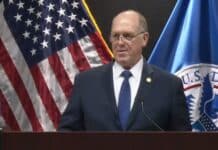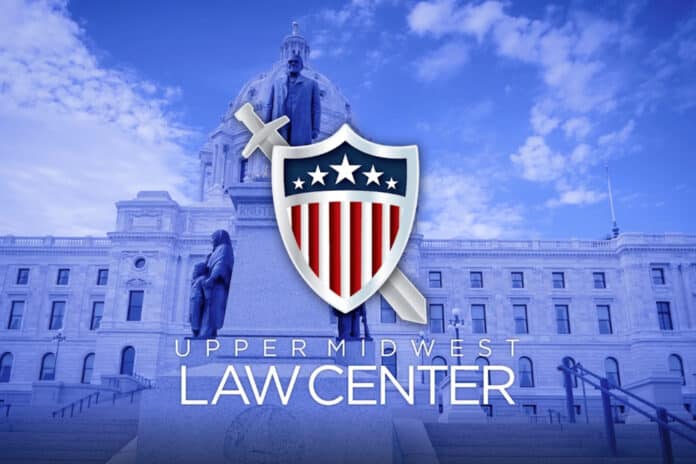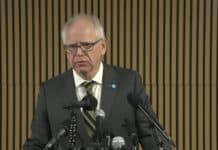The following is an edited transcript from the latest episode of Minnesota Law Report.
Today, we are talking about the new social studies standards proposed for Minnesota students in grades K-12. These are standards that identify the knowledge and skills Minnesota students must have at the end of each grade level in order to graduate. See Minn. Stat. § 120B.018, subd. 2. Last year, the Minnesota Department of Education proposed radical amendments to the social studies standards. Unlike in previous years, the new standards are not grade-level specific, but ask kindergarteners to meet the same standards as high school seniors.
Notably, the new standards also add an “ethnic studies” component to education in Minnesota. Although the Minnesota Legislature tasked the Department with “embed[ing] Indigenous education” into the academic standards this year, see Minn. Stat. § 120B.021, subd. 4(a), the legislature has never required separate standards for “ethnic studies” like it does for geography, history, and economics, see id. § 120B.021, subd. 1(a)(4).
Understandably, many Minnesotans were concerned about these new standards. And in Minnesota, the Department of Education does not get to do whatever it wants. First, there are rules set by the state that it must follow. The standards the Department issues must be “clear, concise, objective, measurable, and grade-level appropriate.” Id. § 120B.021, subd. 2(b)(1). They also cannot require teachers to use “a specific teaching methodology or curriculum.” Id. § 120B.021, subd. 2(b)(2). Second, the Department has to listen to feedback by opening its proposed rules for public comment, and if enough Minnesotans demand it, a public hearing before an Administrative Law Judge is required. See id. § 14.22, subd. 1(a)(3). In response to these standards, Minnesotans submitted written comments to the Minnesota Office of Administrative Hearings. And hundreds showed up at the public hearing. See Report of Administrative Law Judge Eric Lipman, at 2, OAH 8-9005-37919 (Jan. 5, 2024). At that hearing, the Department was required to demonstrate that the proposed social studies standards are needed and reasonable.
Here at the Upper Midwest Law Center, we submitted detailed public comments. In our comments, we explained that the new standards are not “grade-level appropriate,” as required by Minnesota law, because what is appropriate for a kindergartener is not appropriate for twelfth graders, and vice versa. For example, the “economic inquiry” standard requires students to “use economic models and reasoning and data analysis to construct an argument and propose a solution related to an economic question” and “evaluate the impact of the proposed solution on various communities that would be affected.” Obviously kindergarteners still learning to tie their shoes are not capable of this.
Additionally, we argued that the proposed “ethnic studies” standards were not consistent with the First Amendment of the United States Constitution. These standards, for example, include a requirement focused on “resistance” under which students are expected to “describe how individuals and communities have fought for freedom and liberation against systemic and coordinated exercises of power locally and globally.” In addition to “identify[ing] strategies that have resulted in lasting change,” students must also “organize with others to engage in activities that could further the rights and dignity of all.” There is also a new “ways of knowing/methodologies” standard that asks students to “use ethnic and Indigenous studies methods and sources in order to understand the roots of contemporary systems of oppression and apply lessons from the past in order to eliminate historical and contemporary injustices.” We believe that students cannot be compelled to engage in political speech through activism in order to graduate.
There is another problem with the “ethnic studies” standards as well. We argued that some of the proposed standards were not “measurable,” “objective,” or “clear,” as is also required by state law. It is impossible to measure when students have successfully “organize[d] with others to engage in activities that further the rights and dignity of all.” Here at the Upper Midwest Law Center, we try to do just that everyday. But it is unlikely that the Department of Education would agree that our type of advocacy meets their standard. And how are kindergarteners expected to eliminate historical and contemporary injustices? Does fighting for a longer recess count?
Last month, two administrative law judges in Minnesota agreed with us in part. Judge Eric L. Lipman concluded that asking students to “apply lessons from the past in order to eliminate historical and contemporary injustices” was “unduly vague” and it would be implausible to expect students to carry out the actual elimination of some injustice in order to graduate. See Report of Administrative Law Judge Eric Lipman, at 20, supra. Judge Lipman recommended that the standards be amended slightly to comply with state law. One suggested change was for the standard to require students to “apply lessons from the past that could eliminate historical and contemporary injustices.” See id. at 22. With that rewrite, students do not have to be successful in their mandated political activism.
Otherwise, the social studies standards were approved by Judge Lipman. He concluded that the Department was free to add separate “Ethnic Studies” standards and that the rest of the standards were objective and measurable. See id. at 19, 23. The Chief Administrative Law Judge Jenny Starr agreed with Judge Lipman’s findings in full. See Order of the Chief Administrative Law Judge, at 1, OAH-8-9005-37919 (Jan. 16, 2024). Now, the Department must either amend the vague portion of the Ethnic Studies standards and submit it again to Chief Judge Starr for review, or submit the rule as written to the Legislative Coordinating Commission in the State House and Senate for comment. See id. at 1–2.
Most likely, the Department will make some form of Judge Lipman’s suggested changes. These edits are minor and leave the substance of the “Ethnic Studies” recommendation in place. The rest of the social studies standards, however, may be adopted as final by the Department and implemented for the 2026–2027 school year. Any person “aggrieved” by this order could bring an additional challenge to the social studies standards in the Minnesota Court of Appeals under Minnesota’s Administrative Procedure Act in the next 30 days. See Minn. Stat. § 14.63.
Here at the Upper Midwest Law Center, we are concerned that the Department is allowed to continue flouting state law and the U.S. Constitution through vague standards and compelled political activism. Judge Lipman’s ruling did not address our major concern that the standards are not “grade-level appropriate” and that parts of them violate the First Amendment. He also rejected our argument that other parts of the Ethnic Studies standards are not objective or measurable. We will continue to do what we can to safeguard fundamental freedoms, and we stand against academic standards that compromise those rights.
LISTEN:











